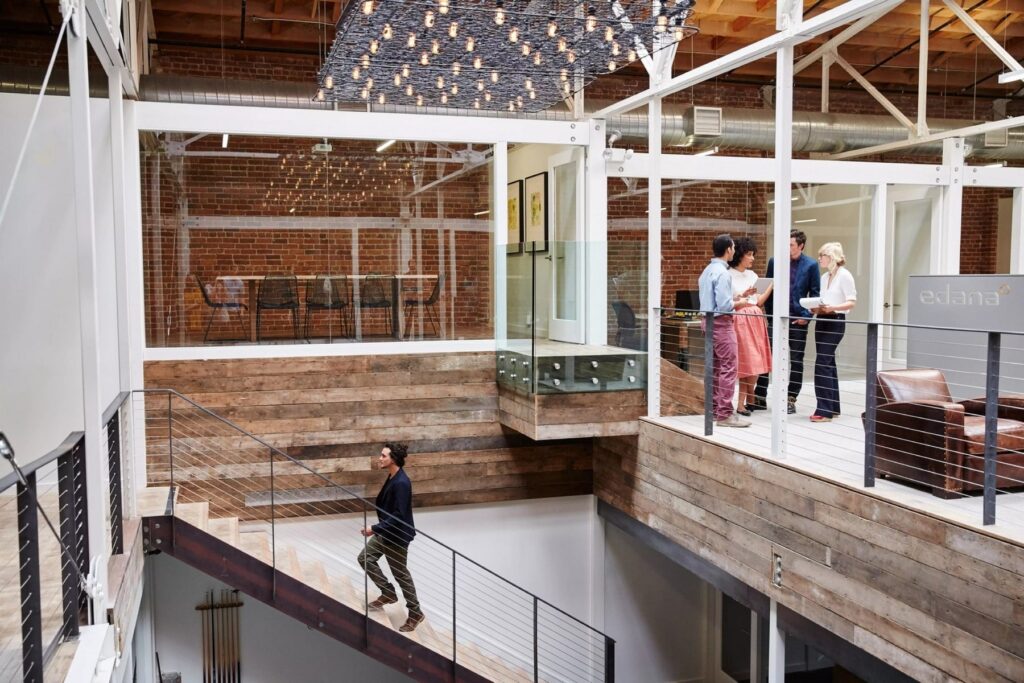Summary – Faced with a range of PMS (Oracle OPERA, Protel Air, Amadeus, Mews, Apaleo, Cloudbeds, etc.), selecting the right tool for a multi-site Swiss group’s size, operating model, and digital ambitions—while ensuring seamless integration and scalability—remains a strategic challenge. The article compares these solutions on modularity, cost, UX, API ecosystem, and support, highlights custom PMS benefits (flexibility, independence, optimized TCO), and outlines integration best practices (open APIs, security, governance, sovereign cloud).
Solution: an audit to align business requirements with the tech roadmap, choosing between standard or custom, plus agile management with an expert integrator for a secure, scalable, ROI-driven rollout.
Property Management Systems (PMS) are comprehensive software platforms that centralize all operations of an establishment (reservations, front desk, housekeeping, billing, etc.), serving as the technological backbone for the hospitality and related sectors. Today, 86% of hoteliers consider the PMS their most useful tool, highlighting its strategic role in optimizing efficiency and revenue.
In multi-site Swiss enterprises (hotel chains, clinic networks, co-living groups, etc.), a modernized PMS enables the standardization of customer experience and the deployment of innovations (enhanced UX, cloud/API integrations, automations). IT investments are on the rise: Swiss hotels plan to increase their digital budgets (4.2% of revenue allocated to software in 2023, up from previous years).
This article compares the main PMS solutions on the market (Oracle OPERA Cloud, Protel Air, Amadeus Cloud PMS, Mews, Apaleo, Cloudbeds, as well as RoomRaccoon, Clock PMS+, and HotelTime), examines the option of custom PMS development, details integration with ERP/CRM/BI systems, and explores the continuous evolution of PMS.
Comparison of Property Managment Systems Available on the Market
Oracle OPERA Cloud
Oracle OPERA Cloud is an industry standard for large international chains. This modular cloud suite manages the entire hotel operation (front-office, distribution, finance) while offering a unified customer view. Hoteliers praise its seamless integration with point-of-sale (POS) systems and task automation, as well as its real-time analytics capabilities. OPERA Cloud natively supports multi-property management and is designed for complex structures (global chains, multi-site hospital groups).
Use Case: A major Swiss chain adopted OPERA to standardize its reservation system and centralize financial management across all its hotels.
Limitations: Reporting customization can sometimes be rigid, there is a steep learning curve, and costs are high (in terms of both personnel and licenses).
Ideal Target: Large groups requiring a proven solution supported by global support.
Protel Air (Planet)
Protel Air (Planet) is a comprehensive European cloud PMS, known for its flexibility and rich ecosystem. This modular suite manages all hotel operations (reservations, billing, housekeeping, CRM) while offering advanced features, such as detailed reporting and integrated payment systems. Hoteliers especially appreciate its integration capabilities: Protel Air supports over 1,200 connections (via protel.io) to major sales channels and technology partners. The solution can be deployed in the cloud or on-premise, offering great flexibility to meet varied needs, from independent hotels to regional chains. Protel Air has been chosen by several hotel groups in Switzerland for its ability to adapt to local standards and integrate with existing systems.
Limitations: As a modular solution, it may require multiple partners to cover all needs, potential complexity in implementation, and the need to manage a broader ecosystem.
Ideal Target: Mid-size European hotels and hotel groups looking for a proven, flexible, and highly integrable solution.
Amadeus Cloud PMS
Amadeus Cloud PMS is an all-in-one cloud platform designed for independent hotels and small chains. It centralizes the key operations of the hotel (reservations, check-in/out, housekeeping) while offering native integration with Amadeus’ distribution channels (GDS, OTA). Hoteliers appreciate its ability to combine PMS, booking engine, and yield management tools, all integrated with Amadeus’ CRM and revenue management ecosystem. In Switzerland, although Amadeus Cloud PMS is less widespread than some local solutions, it attracts establishments looking to benefit from enhanced international visibility through the power of the Amadeus network.
Limitations: Primarily suited for small to medium-sized structures, with support and documentation sometimes seen as lacking in responsiveness and clarity.
Ideal Target: Independent hotels and medium-sized chains looking to centralize PMS, booking engine, and distribution in a single solution.
Mews
Mews is a cloud-native PMS designed to offer a modern and intuitive user experience. The platform supports billing, reservations, daily management, and offers a powerful booking engine. Hoteliers praise its quick setup, mobility (mobile app), and open API that facilitates integration with other tools. Mews is particularly valued in innovative segments: independent hotels, boutiques, co-living, and managed rentals. In Switzerland, for example, an urban co-living concept adopted Mews to manage both hotel and community aspects, including subscriptions and digital access.
Limitations: Less suitable for very large structures that require full internal control; the per-room pricing model can become costly at scale.
Ideal Target: Independent establishments, boutiques, and innovative concepts seeking a modern solution that is quick to deploy.
Apaleo
Apaleo is an open, modular cloud PMS that adopts an “API-first” approach. Designed for hotel chains and short-term rental properties (serviced apartments, co-living), it emphasizes customization. The core of the system is minimalistic: users complete the functionality with third-party applications (revenue management, CRM, home automation, etc.) via its open APIs. In Switzerland, some innovative groups have chosen it to build a custom “digital ecosystem,” promoting independence and scalability (supports 24 countries).
Limitations: Requires solid technical expertise and a potentially higher budget (development and integration maintenance).
Ideal Target: Large tech-savvy companies or real estate startups looking to deeply customize their system and integrate their own tools.
Edana: strategic digital partner in Switzerland
We support companies and organizations in their digital transformation
Cloudbeds
Cloudbeds is an all-in-one cloud solution combining PMS, channel manager, and booking engine. Its strength lies in the automatic aggregation of bookings from distribution channels (OTAs) and rate optimization through its yield management module. Hoteliers appreciate its intuitive visual calendar (drag-and-drop), automated billing, and automatic communication with clients. In Switzerland, many small hotels and inns use it to centralize management without the need for multiple software solutions.
Limitations: Customization options can be limited for complex workflows; support is primarily in English.
Ideal Target: Small hotels and inns looking for a quick-to-deploy, all-in-one, and easy-to-use solution.
RoomRaccoon
RoomRaccoon is an all-in-one PMS favored by small and medium establishments. It combines PMS, channel manager, booking engine, and payment solution into a single platform. Key features include rate and availability synchronization across all channels, dynamic pricing, and automation of billing and customer communications. In Switzerland, a small independent hotel in Geneva chose RoomRaccoon to boost its direct online sales.
Limitations: Some difficulties reported in generating analytical reports and customer support could be improved.
Ideal Target: Independent accommodations (B&Bs, small hotels) seeking an affordable, turnkey solution.
Clock PMS+
Clock PMS+ is a comprehensive cloud PMS praised for its extensive functionality and flexibility. It manages all operations (reservations, pricing, customer communication) and offers many automation options (automatic upsell, pre-check-in, express check-out, alerts, advanced reporting). Its modern and open platform, with numerous APIs, adapts to both traditional hotels and resorts and villas.
Limitations: Setup can be complex (initial configuration takes time) and slowdowns have been reported; some specific developments may be needed to cover all needs.
Ideal Target: Mid-to-large hotels looking for a rich, scalable, and highly customizable solution.
HotelTime
HotelTime is a multi-segment cloud PMS covering hotels, spas, and restaurants. It is accessible via browser, offering simplicity and flexibility, and supports multi-site structures with real-time consolidated reporting. Its strong automation and advanced integrations help reduce infrastructure costs and the need for staff. In Switzerland, a small hotel group selected it for its multilingual support and 7-day-a-week customer service.
Limitations: Less known than global leaders, and its integration ecosystem is more limited.
Ideal Target: Hotels and resorts of all sizes seeking a simple, multilingual solution that also covers additional services.
Custom PMS: Why and for Whom?
In certain cases, businesses may benefit from developing their own custom PMS instead of adopting a market solution.
Typical motivations include:
- Specific business needs (e.g., simultaneous management of hotel, medical, and real estate activities)
- Desire for differentiation (unique customer experience)
- Local compliance requirements or high security standards
- Aiming to optimize the total cost of ownership and free up from recurring license fees
Custom solutions offer full control: features, interfaces, and evolutions follow internal processes exactly. This allows for fine integration with existing systems (internal ERP, corporate website, client portal) and reduces dependency on third-party vendors. For example, a Swiss multi-sector cooperative developed an internal PMS tailored to its mixed business model of accommodations and health services, integrating its billing modules and appointment scheduling specific to the industry’s workflows right from the start.
The advantages of a custom solution are flexibility and independence: owning the code avoids high recurring license fees and allows for continuous system evolution based on ROI. While the initial cost is higher (consultants, development), the total cost of ownership (TCO) can be better in the long term if the product delivers a competitive advantage (customer experience, efficiency). Open-source solutions (e.g., ERP modules like Odoo adapted into a PMS) or hybrid approaches (combining cloud applications and internal development) are also options to control costs and enhance customization.
A custom project typically follows an agile and modular approach: choosing a scalable cloud architecture, incremental phases, and rapid prototyping to test key functions. It is suitable for medium to large enterprises or those with IT teams capable of maintaining the system.
In any case, success requires a thorough needs analysis, an open architecture (APIs), and continuous monitoring to avoid software obsolescence. At Edana, for example, we structure your projects to optimize investment and guarantee a quick return via iterative cycles.
Integrating the PMS into the Digital Ecosystem
Integrating the PMS into the broader IT infrastructure is crucial for maximizing ROI. A well-integrated PMS with ERP (financial management, HR), CRM (customer loyalty, marketing), BI (multi-site reporting), client portals, and even IoT building equipment facilitates continuous data exchange. As NetSuite reminds us, without integration, businesses suffer from data silos with duplicate entries, errors, and delays. On the other hand, a successful integration creates a single, real-time data source, streamlining operations and enriching analytics.
For example, linking the PMS to a CRM allows for the automatic sharing of customer preferences (profile management, stay history) to personalize offers. Similarly, PMS-POS synchronization (restaurants, shops) and PMS-BI integration centralize revenues and refine forecasts.
Modern connectors (REST APIs, iPaaS middleware) enable real-time data exchanges. Recent PMS solutions generally offer open APIs and webhooks, facilitating connections to third-party systems and providing more integration possibilities than iPaaS connectors like Zapier, which have technical limitations and a significant financial cost. This interoperability reduces manual data entry and errors, freeing up time for analysis and strategic actions. For instance, in reception, a room status change in the PMS can trigger an update to the housekeeping schedule, notify the CRM, and automatically log maintenance requests (from IoT sensors) as work tickets.
However, there are specific integration pitfalls to avoid:
- Failing to plan the integration from the start: Before selecting a PMS, assess its ability to integrate with your ERP, CRM, BI, and other systems. Avoid “monolithic” or closed solutions that limit scalability and connectivity. Ensure the PMS offers open APIs, webhooks, and clear technical documentation.
- Underestimating technical complexity: Integration goes beyond initial connection. It requires an analysis of data flows (frequency, volume, format) and real-time or deferred exchange scenarios. Error handling (reprocessing, alerts) and data consistency (unique key, synchronization) must be planned in advance.
- Ignoring security of exchanges: Integration potentially exposes sensitive data (customer identity, payments, preferences) to third parties. Ensure that APIs and connectors use secure protocols (HTTPS, OAuth2, JWT, encryption), and that sensitive data complies with standards (e.g., GDPR, PCI DSS).
- Neglecting access rights and data governance: Each integrated system should apply a clear access policy: who can read/write, which actions are authorized, and how changes are tracked. This guarantees confidentiality, integrity, and compliance.
- Choosing an unsuitable hosting model: Opt for hosting or cloud solutions that align with sovereignty requirements and your integration needs. Choose data centers located in Europe and a provider offering efficient interconnection between your systems (for example, via a hybrid cloud or dedicated network).
Continuous Evolution and Customization
Deploying a PMS is not the final step: to remain competitive, businesses must continuously evolve it. Technological trends drive innovation in customer experience and operational efficiency. AI and machine learning are infiltrating PMS systems: demand forecasting, dynamic revenue management, 24/7 pre-check-in chatbots and assistance, everything is becoming automatable. For example, intelligent PMS solutions will soon enable bulk check-ins automatically before customers even arrive. Mobile and contactless technologies are advancing: check-in/check-out via smartphone, digital keys, automatic kiosks, or voice assistants in rooms streamline the customer journey.
The Internet of Things (IoT) and home automation are making stays more personalized (adjusting lighting or temperature remotely, anti-maintenance sensors) while also collecting data for predictive management. Immersive technologies (virtual reality for guided tours, augmented reality for signage) are also becoming a marketing tool. Finally, PMS systems are increasingly integrating advanced analytics modules: continuous analysis of customer data (CRM), sales, or reviews helps anticipate needs and offer contextual upselling (“We’ve reserved a spa session for you at a special rate,” etc.). Thus, the PMS evolves into a “smart platform,” central to delivering a differentiated experience. Failing to follow these developments means risking falling behind: as experts point out, predictive analytics and dynamic pricing based on data are now pillars of hotel competitiveness.
Make Your PMS a Growth Tool Aligned with Your Roadmap
A well-suited PMS offers a quick return on investment: it enhances the customer experience (loyalty, recommendations), optimizes resources (reducing manual tasks, better room allocation), and boosts revenue (improved yield, direct channels). Swiss decision-makers can choose a market solution—evaluating features, integrations, and licensing—or opt for custom development to meet unique needs. In either case, success relies on a clear strategy and collaboration with an expert integrator.
Edana supports Swiss businesses in this process: from needs analysis to implementation, we offer custom or hybrid PMS solutions (industry-specific + open source) designed to evolve. Our modular approach (cloud and microservices) ensures scalability and system resilience. We emphasize cybersecurity (GDPR/PCI compliance, secure hosting) and CSR (IT resource optimization, green hosting, digitization).
With our expertise, your PMS will become an agile, open, and secure platform capable of adapting to your company’s growth and meeting your customers’ future expectations.







 Views: 5320
Views: 5320